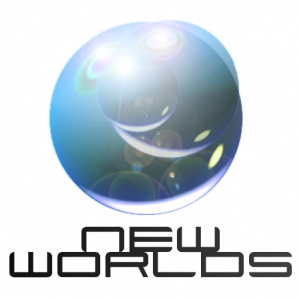Overwhelming Fiction!
Let me dust off the blog here.
One of the reasons I’ve not been blogging with any regularity is that I’ve been heavily involved with the Virginia G. Piper Center for Creative Writing at Arizona State University. I’m the director of the Science Fiction/Fantasy wing of the Center’s Your Novel Year program. This is an 18 month long certificate program, conducted online, in which students go from a blank page to a finished novel. They work primarily with me, and then are mentored by other authors and editors, to have their dream of writing a novel come true.
It’s been very rewarding and educational for me to be designing and working on this program. Each year I get to select a dozen or so students from among all the applicants to the program. I look for skills and talent, then get to step them through the arduous task of learning how to write on a professional level. Watching the progression of the students has been amazing, and I have high hopes for all of them.
In one of the open chats we have running, one of my students asked a great pair of questions:
When you are working on/in a new universe, how do you keep from getting overwhelmed with all of the stories that are there to be told? How do you wade through the backstories of various characters to truly share the now story?
I was going to reply in that chat but realized there’s no simple answer to the above because writing is a process. The answer is going to be a bit long, so I decided to share it with all of you, too.
Here are the things which I think are important.
Ideas are cheap: All of us, when we have an idea that’s clearly brilliant, are prone to put it on a pedestal, or make it central to whatever we’re doing. This is something that beginning writers often fall prey to—jealously guarding that golden idea because it’s so valuable. You can tell if you’re that fixated on an idea by being reluctant to share it in case someone else wants to steal it.
Fact is that any idea we have can be improved. This usually happens in combination with other ideas. A really good question to ask yourself is “How can I use [this idea] to achieve [a goal]?” It gets you looking past the glowing spark of an idea toward practical uses for it
Story and world development is a cyclical process. You get an idea, you begin to work with it, the idea changes and/or forces changes in other ideas. Lather. Rinse. Repeat. This continues in the writing, too. That results in a lot more ideas and stories spinning off.
For example, in the DragonCrown War novels, I had my main character in the first book wearing a mask because, basically, I thought it was a cool idea. But then I had to think about the practical applications of it. If he has this great mask, and goes to a public bath, what does he do with it? Can’t wear it in the bath, so I created bathing masks. Practical solution. And we had to have curtain alcoves in homes, so folks on the street couldn’t see into a home where folks might be running around unmasked. And so it went, with masks being laden with a lot more meaning and consequence.
Thus, even if you have an outstanding idea, how you work it into the story, or build the story around it, means you’ll be doing a lot of development. Just having the idea is only be beginning.
Write all the story ideas down. When developing a story, I start with a notebook and jot down everything. I make maps and charts, record statistics, figure out the monetary system and do everything a good gamemaster does in developing a world. When I get a story idea I flip (usually) to the notebook’s last page and jot down that idea. As I build the world and story up, I grab those ideas and work them in, or further refine them.
The best stories to tell have an emotional component to them. We’ve all read stories which are, in essence, a series of events. Take, for example, H. G. Wells’ The War of The Worlds. It’s entirely a series of events that happen to the narrator. To Wells’ credit, characterization and emotional storylines weren’t really a big thing back when he was writing.
Character growth is very important in books today. I do my best, in every novel, every novella, every story, to have a growth arc for at least one character. This means I look at the emotional impact the events will have on each character. I make sure their reactions are in character, and that they learn something from the experience. I’ve found that stories which allow me to do that are far more rewarding to write and read than stories that do not. When I find a story that’s emotionally laden, I know I’ve found something I need to write.
Really, when you think about it, it’s the emotional aspect which elevates a tale from a dry cascade of points in time into a meaningful and relatable story. Since stories are supposed to communicate to the reader, this is an enviable type of tale to create.
So, in short, write everything down, massage it, find the emotional connection, and write. Not only respect the fact that this is a process, but indulge it. The results will be better than you first imagined.



 05. Feb, 2016
05. Feb, 2016 








Comments are closed.